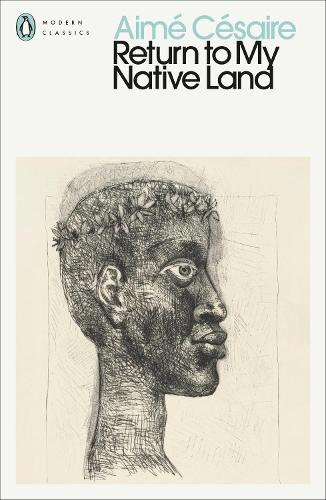
Return to My Native Land
(Paperback)
Publishing Details
Return to My Native Land
By (Author) Aim Csaire
Translated by John Berger
Translated by Anna Bostock
Introduction by Jason Allen-Paisant
Penguin Books Ltd
Penguin Classics
10th September 2024
13th June 2024
United Kingdom
Classifications
General
Non Fiction
Poetry by individual poets
Narrative theme: Identity / belonging
Memoirs
Decolonisation and postcolonial studies
Ethnic groups and multicultural studies
841.912
Physical Properties
Paperback
96
Width 128mm, Height 198mm, Spine 5mm
79g
Description
'The undisputed masterpiece of negritude and a poetic milestone of anti-colonialism' Guardian 'We shall speak. We shall sing. We shall shout.' This blazing autobiographical poem by the founder of the negritude movement became a rallying cry for decolonisation when it appeared in 1939. Following one man's return from Europe to his homeland of Martinique, it is a reckoning with the trauma of slavery and exploitation, and a triumphant anthem for Black identity, one which reclaims and remakes language itself. 'Nothing less than the greatest lyrical monument of this time' Andre Breton 'A Cesaire poem explodes and whirls about itself like a rocket, suns burst forth whirling and exploding' Jean-Paul Sartre 'The most influential Francophone Caribbean writer of his generation' Independent
Reviews
Nothing less than the greatest lyrical monument of this time -- Andr Breton
Aime Csaire's brooding exploration of Negritude bristles with the energetic, unique qualities of Walt Whitman's Song of Myself . . . [Csaire's] protean lyric, filled with historical allusions, serves to exorcise individual and collective self-hatreds engendered by the psychological trauma of slavery and its aftermath * San Francisco Chronicle *
One of the most powerful French poets of the century * New York Times Book Review *
The poem pulls no punches. Now tremulous, now grating, the improvised text drums and jabs in spasmodic phrases and slogans. Each encounter, each twist of idiom, thrusts itself into the reader's mind as a fierce challenge to understand and to empathize -- Roger Cardinal * The Times Literary Supplement *
A more razor-sharp encapsulation of the situation of African slavery could not be found * Quarterly Conversation *
Edouard Glissant once wrote that everything begins with poetry. Aime Cesaire's epic poem was a true beginning in 1939... Return to my Native Land became the rallying cry of decolonization but the fact that it is still read means it has survived as poetry. This translation preserves its poetic force and its reissue is a welcome event -- J. Michael Dash, New York University
Return to My Native Land is a monumental tome to our times, and this new translation by John Berger and Anya Bostock possesses the tropical heat of the poet's sonority. Though, in his refrain, Aim Csaire intones "the small hours," there isn't anything small about the raw lyricism articulated into this incantation of fiery wit. The translators convey the spirit of improvisation, yet, with a deftness of image and music, they deliver this book-length poem as a seamless work of art--an existential cry against a man-made void. What translates is the speaker's revolutionary psyche on to the page--his fierce affirmation of existence through an eloquent clarity of the real and surreal. Nowhere is Csaire's passion sacrificed; this translation is a tribute to the poet -- Yusef Komunyakaa, New York University
Amazing... This level of sophistication is partly why Csaire became a world citizen, mayor, and Martinique's ambassador to the French Parliament * Ebony *
Author Bio
Aime Cesaire (1913-2008) was a Martinican poet and politician who played a leading role in the struggle to liberate the French colonies of Africa and the Caribbean. Renowned for co-founding the Negritude movement, Cesaire was a pioneer in surrealist poetry. His achievements as a writer were recognised worldwide with awards including the International N zim Hikmet Poetry Award, the Laporte Prize, the Viareggio-Versilia Prize for Literature, and the Grand Prix National de Poesie; in 2002, he was made Commander of the Order of Merit of Cote d'Ivoire. His works include the plays A Tempest (1969) and A Season in the Congo (1966), the searing political essay Discourse on Colonialism (1956), and the long poem Return to My Native Land (1950), dubbed "nothing less than the greatest lyrical monument of this time" (Andre Breton). John Berger was born in London in 1926. His acclaimed works of both fiction and non-fiction include the seminal Ways of Seeing and the novel G., which won the Booker Prize in 1972; his translations include Brecht's Poems on the Theatre and Mural by Mahmoud Darwish. In 1962 he left Britain permanently, to live in a small village in the French Alps. He died in 2017. Anna Bostock was a Russian-British translator, intellectual and feminist. She was born in China in 1923 and later moved to England, where she began to work as a translator after the Second World War. She died in 2018.
